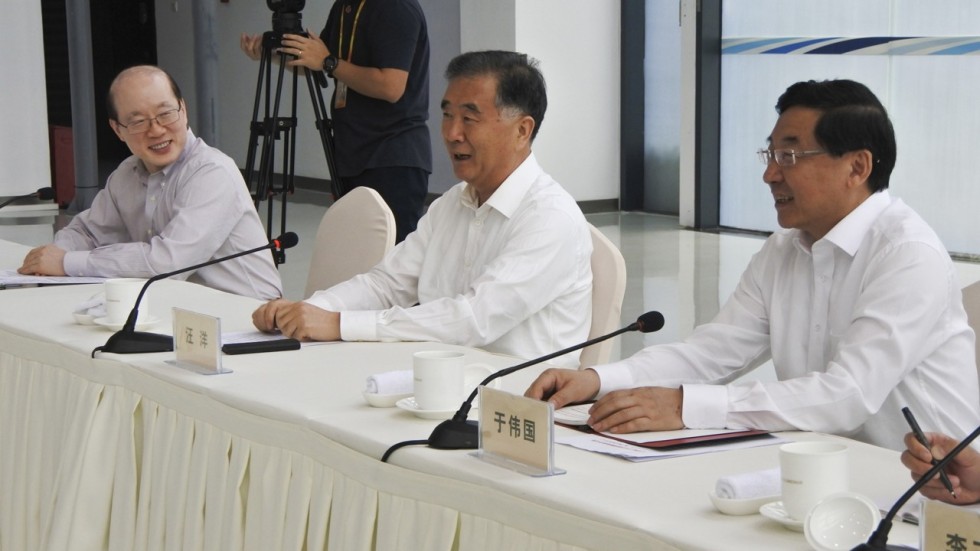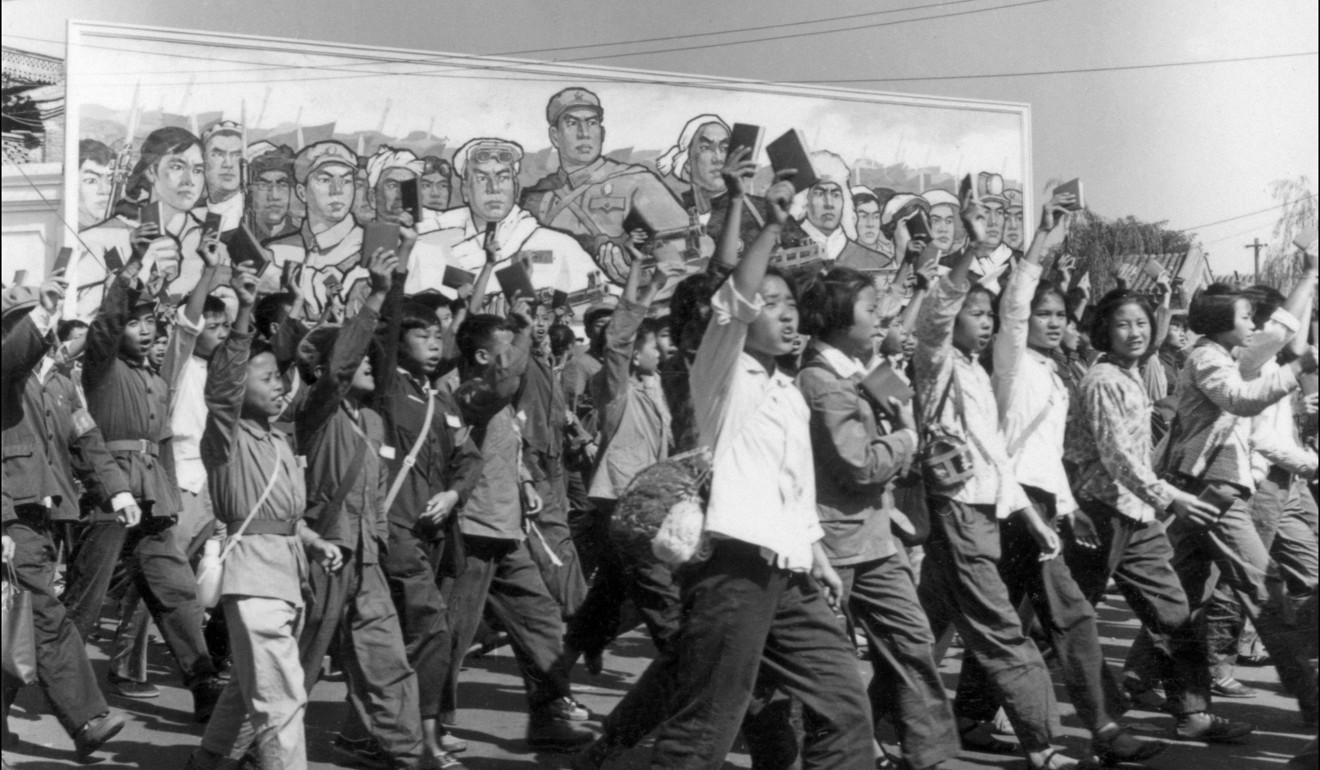Source: SCMP (6/7/18)
Top Chinese Communist Party cadre criticises Cultural Revolution for damage to tradition
Wang Yang applauds Taiwan for preserving aspects of the past in rare reference to party’s dark past
By Jun Mai

In Xiamen on Wednesday, Wang Yang (centre), chairman of the Chinese People’s Political Consultative Conference, meets Taiwanese living in Fujian province. Photo: CNA
The Communist Party’s top political adviser has openly derided the Cultural Revolution for damaging traditional Chinese culture, in a rare reference by a senior Chinese official to the dark chapter in the party’s history.
“The Cultural Revolution eliminated a large part of both the essence and the dregs of traditional culture on the mainland,” said Wang Yang, chairman of the Chinese People’s Political Consultative Conference, China’s top political advisory body. “But Taiwan preserved it well.”
Wang made the assessment on Wednesday in a meeting with a group of about a dozen Taiwanese working in Fujian province, across the strait from Taiwan, according to the Taipei-based Central News Agency.
Beijing has suppressed public discussion on the Cultural Revolution, a decade of political and social turmoil set off in 1966 by then supreme leader Mao Zedong, over fears of a backlash against the party’s rule.
Such suppression has intensified in recent years under President Xi Jinping’s push to stem “historical nihilism”, or any challenges to Beijing’s official narrative of the past.
[Controversy over Chinese textbook’s Cultural Revolution chapter as state publisher denies censorship]
In the meeting in Xiamen on Wednesday, Wang highlighted Taiwan’s retention of the traditional Chinese system of “borough chiefs”, a form of administration that disappeared in mainland China after the communists took power.
Taiwan’s borough chiefs are elected village-level officials and the system dates back to around 700BC.
The meeting was also attended by Liu Jieyi, Beijing’s top official overseeing cross-strait relations, and Fujian party boss Yu Weiguo.
Responding to comments from the Taiwanese attendees, Wang acknowledged there was work to be done to improve overall conditions in mainland China but did not elaborate.
Wang also underlined Beijing’s strategy of courting Beijing-friendly camps in Taiwan and attacking opponents.
“Soft policies will be softer, but hard ones will be harder against pro-independence sentiment. We will walk a fine line,” Wang said.
[Why are so many Chinese nostalgic for the Cultural Revolution?]
As part of that approach, Beijing introduced a raft of measures in March that it says are designed to give Taiwanese companies and individuals freer access to opportunities and benefits in mainland China.
Among other things, the new measures will allow Taiwanese companies doing business in mainland China to tap into the “Made in China 2025” programme, the central government’s blueprint for upgrading the country’s manufacturing sector. The Taiwanese companies will also be able to bid for infrastructure projects, and claim various tax breaks.
At the same time, the People’s Liberation Army has stepped up air force and naval drills that many observers see as intimidation of pro-independence groups in Taiwan.
